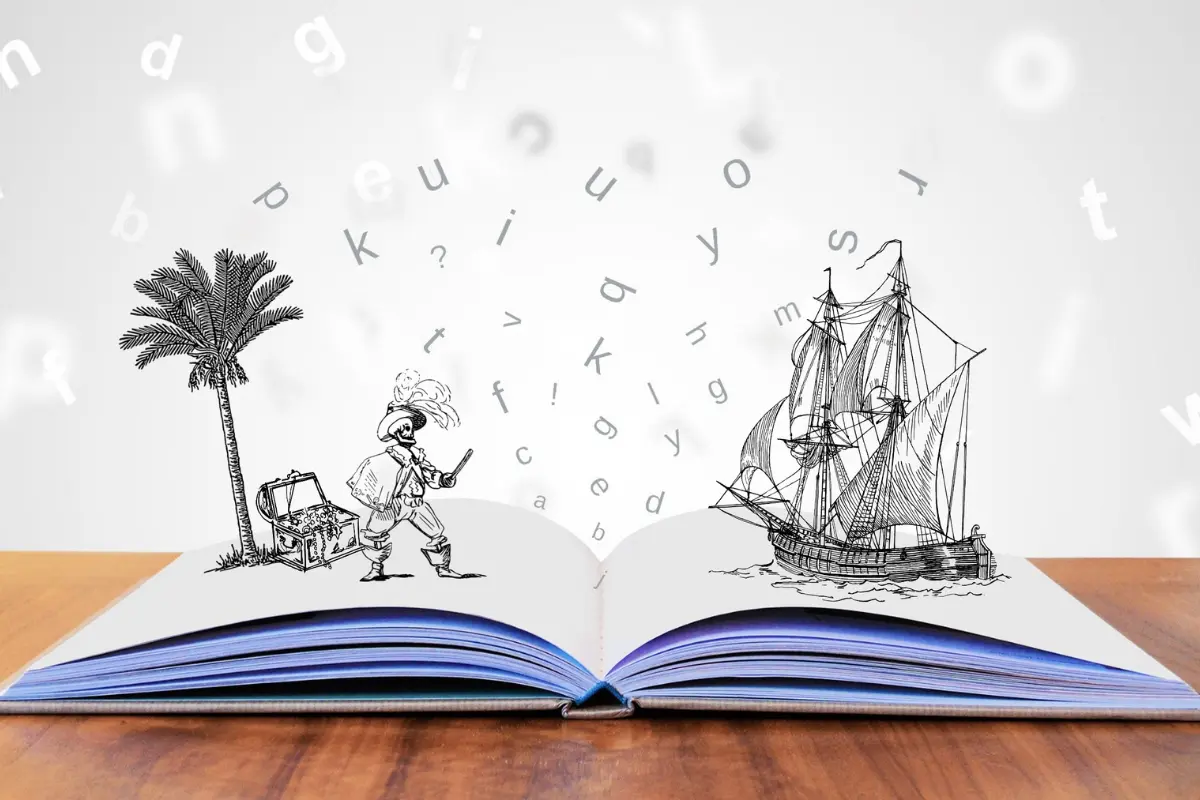What is a Theme? 100 Most Common Themes in Literature
Explore the most common themes in literature, including love, conflict, identity, and more. Understand how these timeless themes shape stories and resonate with readers.

Zannat Mou
Last updated on Sep 20th, 2024

When you click on affiliate links on QuillMuse.com and make a purchase, you won’t pay a penny more, but we’ll get a small commission—this helps us keep up with publishing valuable content on QuillMuse. Read More.
Table of Contents
Literature merely grazes the surface when it comes to the innumerable subjects that influence our collective existence and which shape our lives, societies, and perceptions of the world. Their themes range from classical works to contemporary masterpieces and are as diverse as they are profound.
We will focus on one hundred most common themes in literature moving forward; by doing so, we will show you an amazing background of ideas and feelings that connect readers throughout centuries all over the world.
Introduction
Literature is by far the most powerful genre in quest of the depths of human experience. From matters about love, loss, and loss to problems about power and prejudice, the 100 most popular themes in literature represent the human condition at its best. In our comprehensive handbook, we explore these everlasting themes in detail, giving our interpretation of their significance and how they influence the narratives we hear as well as the world we live in. Feel ourselves through this essence of literature where each theme tells about those truths that create a bond between us as human beings.
What is the Theme in Literature?
A lot of beginners are excited to know what the theme of literature is. In literature, a theme is the central issue dealt with in the text. It is what the story signifies—the covert implication or main idea that the writer shows through his characters, plot, and setting. Themes of which stories consist often rely on widely accepted concepts and can be represented in explicit or implicit ways.
For example, themes of love, conflict, revenge, justice, identity, and also the struggle between good and evil. The theme imparts readers wisdom to discover what this narrative about deep meaning is and what the author wants us to understand.
Why are Themes Important in Literature?
Themes are the soul of literature and give stories profoundness, importance, and resonance. There are several important themes in literature:
1. Universality: The reader should be able to identify with the themes regardless of his culture or historical period; therefore, the literature created will be trans-cultural and trans-historical.
2. Themes of Human Experience: Themes let the readers dig deeper into the complex experiences of humans, their emotions, and relationships so that they can make sense of and explore what is being portrayed.
3. Critical Thinking: Thematic analysis of the text or chapters raises issues that require a deep understanding of the story, which causes a reader to analyze and interpret implicit messages or ideas within a text system.
4. Connection and Empathy: These are what themes do; they create the bond that contributes to the growth of empathy and understanding and help in this development by letting people see the world from different perspectives.
5. Reflection and Insight: The obliquity of Themes makes readers stop their lives and take into consideration their past for further insights that may promote development and self-improvement.
100 Most Common Themes in Literature

Here you will find 100 themes usually common in literature:
- Love
- Friendship
- Betrayal
- Redemption
- Loss
- Identity
- Coming of age
- Power
- Justice
- Courage
- Freedom
- Sacrifice
- Isolation
- Survival
- Family
- War
- Dreams
- Revenge
- Hope
- Truth
- Loneliness
- Transformation
- Ambition
- Guilt
- Prejudice
- Corruption
- Nature
- Ambivalence
- Discovery
- Faith
- Temptation
- Despair
- Innocence
- Reality vs. illusion
- Legacy
- Authority
- Fate
- Individual vs. society
- Memory
- Madness
- Tradition
- Rebellion
- Doubt
- Betrayal
- Perception vs. reality
- Growth
- Resilience
- Beauty
- Nostalgia
- Absurdity
- Exploration
- Addiction
- Forgiveness
- Alienation
- Heroism
- Knowledge
- Miscommunication
- Exile
- Resentment
- Passion
- Authority
- Secrecy
- Displacement
- Perseverance
- Conformity
- Wisdom
- Disillusionment
- Injustice
- Consequences
- Empowerment
- Belonging
- Transformation
- Honor
- Predestination
- Enlightenment
- Dystopia
- Utopia
- Manipulation
- Doubt
- Technology
- Nature vs. nurture
- Loss of innocence
- Repression
- Acceptance
- Redemption
- Alien invasion
- Evolution
- Legacy
- Emancipation
- Revenge
- Tradition vs. modernity
- Authority vs. rebellion
- Human vs. nature
- Love vs. duty
- Extinction
- Perception
- Censorship
- Exploration of the unknown
- Greed
- Human nature
4 Themes That Are Most Important for Writing Drama
How themes of drama can be represented through four different genres:
Betrayal and Trust: This theme of Betrayal and Trust is about the fallout in relationships or organizations when trust is lost, which shows how much emotional pain the person suffers due to this hurt.
Redemption and Forgiveness: The stories with such a theme should, first of all, make the main character forgive an earlier offense and allow for a chance to regain himself or herself. These stories also shed light on the tribulations and struggles as well as on development through personal growth.
Identity and Self-Discovery: The central idea here is depicted by characters who transition from their current state into their future selves. Many times, beginners incorporate this change. It comprises several issues like self-acceptance, societal expectations, and transformation.
Power and Corruption: Dramas that cover this theme help us to understand how the quest for power can deteriorate moral values, push us into a moral dilemma, and be harmful to both individuals and society.
4 Themes That You Must Need for Writing a Novel
Do you have any idea of how to write a novel? When you write a novel, the inclusion of strong and engaging themes can deepen and enliven your story.
1. Conflict and Resolution: With the bear at the center of most stories, this theme represents the protagonist who endures difficulties and conflicts in their quest to achieve a goal, be it internal or external obstacles along the way. It pushes forward both the plot and character development.
2. Love and Relationships: In this context, you will find out that it is not only the romantic type of love but also the platonic, familial one. It creates an emotional connection and makes your story easy to relate to. Popularity also goes deep into the dynamics and complexities of human relationships.
3. Good vs. Evil: The struggle between the contrasting virtues of morality and immorality is what this classic theme exemplifies. It offers a chance for characters to do value analysis and explore their ethics as well as their choices’s consequences.
4. Change and Transformation: Characters’ development, be it growth, learning, or decline, is a great theme based on the changes in their lives. It emphasizes a certain degree of change and the personal development that results from it.
3 Key Themes That Are Fundamental to Writing a Modern Novel
Here are three key themes to help in writing a modern novel:
1. Identity and Self-Discovery: In complex social settings, themes that focus on personal identity, self-acceptance, and the journey to self-knowledge are very important. Those themes express readers who, at some point, are also seeking to define themselves.
2. Social Justice and Inequality: With racial inequality, gender discrimination, and economic disparity among the many contemporary issues that are of importance to the novels of today, these themes also provide a good learning ground for learners. They serve as lenses for looking at systemic gravity and the struggle for a more just life.
3. Technology and Its Impact: The fact that technology is part of every aspect of people’s lives makes this theme a must-read. Novels may get into the ethical dilemmas regarding inventions like artificial intelligence or the impact of social media on human relationships, as well as wider social changes caused by technological progress.
Theme Examples in Popular Novels
Good vs Evil:
Harry Potter” series by J.K. Rowling: The principal story depicts the conflict between good (Harry and his friends) and evil (Voldemort and his supporters).[1]
Power and Corruption:
Animal Farm” by George Orwell is an allegorical representation that demonstrates how the pigs slowly gained more and more power until they possessed everything all the other animals had.
1984 by George Orwell: The undermining power of dictatorships and its effect on the freedom of individuals.
Imperialism and Colonialism:
Heart of Darkness by Joseph Conrads, The novella digs deep into the issues of imperialism and the exploitation of Africa by Europeans. It unveils the cruelty and moral decay in colonialism, where the Europeans, who are the main characters, often explain their acts of exploitation and violence as helping to bring “civilization” to the people of the continent.
Conclusion
Without themes, literature is nothing. Readers do not get enjoyment without themes in literature. Themes covered by fiction range from basic ones such as love and friendship to complex issues such as power, justice, or values; they are appreciated by readers of all times and cultures. These values break through restrictions created by nations, connecting even the whole of humanity at the specified points or levels. Such thematic lines work for us like mirrors, which introduce us to ourselves, our society, and our world from a new perspective filled with more clarity and empathy.
Through such a reading, one can discuss the theme, which reveals universally acknowledged truth, touch on moral dilemmas and difficult ethical questions, and navigate through challenging situations people find themselves in. Reading these yields has several benefits: expanding horizons, providing broader perspectives, increasing appreciation for realms of artistry and beauty emerging in the literature, allowing one to shape current insight regarding oneself and surroundings, and subsequently invoking processes directing personal evolution.
FAQs
Why do authors use common themes?
Authors use common themes that are based on shared experiences and general truths that help enhance readability and emotional impact, as well as give a framework to search for complex ideas more simply and interestingly.
How do authors develop common themes?
Authors develop the common themes by drawing from the human experience that is common to all, cultural narratives, and emotional truths, which they then interweave among the characters, plots, and settings to make such stories relatable and impactful, thus appealing to a greater readership. These are then scanned for story consistency, comprehension, and appeal to reader sensibilities.
What is the common theme of poetry?
The poetry’s common themes usually revolve around the emotional, experiential, natural, love, thematic of loss, and the human condition.
How we've reviewed this article
Our content is thoroughly researched and fact-checked using reputable sources. While we aim for precision, we encourage independent verification for complete confidence.
We keep our articles up-to-date regularly to ensure accuracy and relevance as new information becomes available.
- Current Version
- Sep 20th, 2024
- May 22nd, 2024



